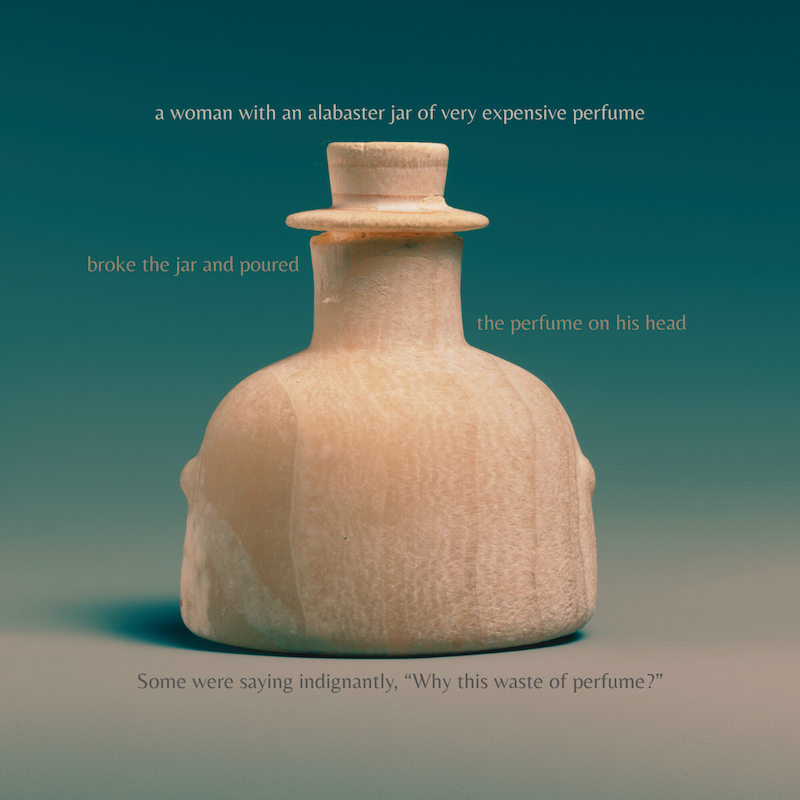The Hanging Break
The action of a woman with a flask of perfume was the straw that led to the betrayal of Jesus Christ and the death of the disciple who betrayed Him.
The old idiom talks about the straw that broke the camel's back. It refers to a mounting problem that finally reaches the breaking point, and all it takes is one more piece of straw, and the catastrophe happens. The idiom about the camel's back being broken can be applied in many situations. Personal applications tend to be the best. A person is at wits' end, can't take anymore, and one more straw breaks the camel's back. A relationship is bad and getting worse, but that last insult was the final straw. The relationship is broken, never to be reconciled again.
It is not uncommon for people to have a camel-back-breaking scenario with God. In fact, there is one described in the gospel of Mark. It's not actually a camel back-breaking. It's a bottle-breaking situation, but the result is the same. An overreaction that comes from other things mounting up. Let me explain.
The final chapters of the Gospel of Mark describe the last days of Jesus' time in human flesh on earth. Chapter 14 of Mark's gospel gives an account of Jesus being in Bethany at the home of a leper named Simon. While the Lord and His disciples were there, "reclining at the table", a woman entered the house, broke a bottle of expensive perfume, and poured it on Jesus' head. Some of the disciples saw this happen and were indignant. They openly and loudly scolded the woman for the "waste of perfume." Jesus told them to stop. He defended the woman's actions by saying she had done "a beautiful thing for me." The Messiah went further, saying that the indignant disciples, who argued for helping the poor with the money from selling the perfume, were in error. He said, "The poor you will have with you always, and you can help them anytime you want. But I will not be with you always." He closed down the issue by telling those present that the woman, who was Mary, the sister of Lazarus, "did what she could" to prepare Jesus for His upcoming burial.
In the very next verses, the author of the gospel writes that Judas Iscarot "went to the high priests to betray Jesus to them." There it is. The straw that broke the camel's back, or rather, the bottle that broke the disciple's devotion. This was the classic culmination of issues that led to one fatal instance, one disastrous action, resulting in a catastrophic response. Think about it: Judas, who spent years under the teaching of Jesus and saw many miracles, witnessed a woman pour expensive perfume over Jesus' head. He was reprimanded by his teacher for his indignant reaction to the event. So he decided to sell Jesus out to the religious authorities. Seems like a bit of an overreaction.
Isn't it interesting how most people take issue with God over what people do? Certainly, some have refused to worship God because personal needs were unmet. But most people who reject God do so because others have done something, and God "allowed" it to happen. I was speaking with a Jewish friend who said he could never worship a God who allowed millions to die in the holocaust. I did not argue with his feelings on the matter. Instead, I asked him to consider who killed the millions of people. Some suggest that God cannot be worshipped because of the atrocities recorded in the Old Testament without contemplating who inflicted the destruction or even the reason why such destruction might have been prescribed.
How about the God of the New Testament? The One who had the atrocities done to Him? Oh, we can't worship that God because He allowed Himself to be killed. Still blaming God for the things that others do. People have left God because of what a pastor did, what a parent did, what a fellow church member did! Seriously! Can you think of a more catastrophic response than to reject an almighty, eternal, loving, heavenly Father because someone at church did you wrong?
Remember, it was Judas who, after betraying the Savior of the world, hung himself in guilt. He realized the mistake he had made, but it was too late. If you are a person who has rejected God, consider your position now. Think about why you have done so. Think about the end result of your decision. It is not too late for you.

